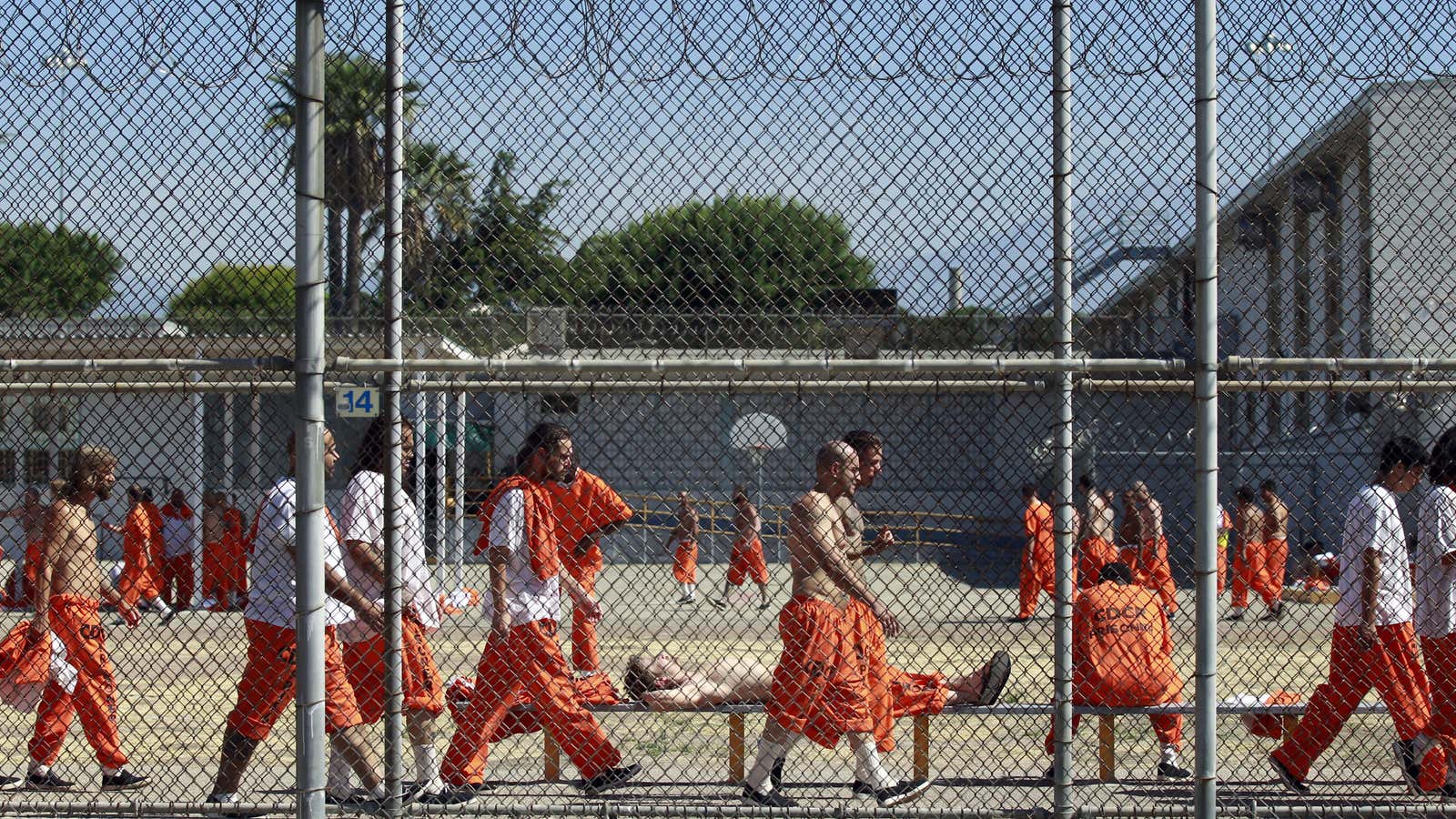Damon Hininger, the CEO of Corrections Corporation of America, predicted at a June investor conference that his firm would be “just fine” no matter who the next US president is.
It was a noteworthy statement, considering that the use of privately run prisons has been a subject of some debate this election season. Hillary Clinton’s campaign pledged to “end private prisons and private immigrant detention centers” after it was criticized for accepting donations from prison companies. Her former Democratic challenger, Bernie Sanders, introduced legislation last September to phase out privately run federal prisons within three years. Republican nominee Donald Trump, meanwhile, has said that he thinks that private prisons seem to work a lot better.
In any case, as Hininger noted, CCA wasn’t worried. The company, a pioneer in America’s for-profit prison industry, has handled government contracts for more than three decades now, managing through both Democratic and Republican administrations.
“I think about the next president, whoever that is, if it’s Hillary Clinton or if it’s Donald Trump, there’s going to be so many things that he or she are going to have to deal with next year or next administration, both nationally and internationally, that I think having a view on our business, our industry is going to be really, really low on the priority list,” Hininger said, as reported by in The Intercept.
He was right. But probably not for the reasons he was expecting.
The US Justice Department announced today (Aug. 18) that it will end its use of private prisons, effectively taking the issue off the table for the next US president. (The move does not cover the companies’ contracts to operate state prisons.)
The decision at the federal level followed a damning report (pdf) released this month by the Justice Department’s Office of the Inspector General. It showed that private prisons, which held about 12% of the federal Bureau of Prisons’ total inmate population as of December 2015, had significantly more safety and security incidents per capita.
“Over the course of two decades private prisons have not provided any significant cost savings to state or federal governments, but have repeatedly been demonstrated to pose serious concerns about safety and security,” said Marc Mauer, executive director of The Sentencing Project, a criminal-justice reform advocacy group. “Today’s action moves us closer to a moment when government can once again assume this important responsibility.”
Shares in publicly traded prison companies tanked on the decision.
No doubt there is much uncertainty ahead for America’s for-profit prison companies. But if they weren’t worried about where the next president will come down on the issue of privately operated prisons, now they don’t have to even wonder.
